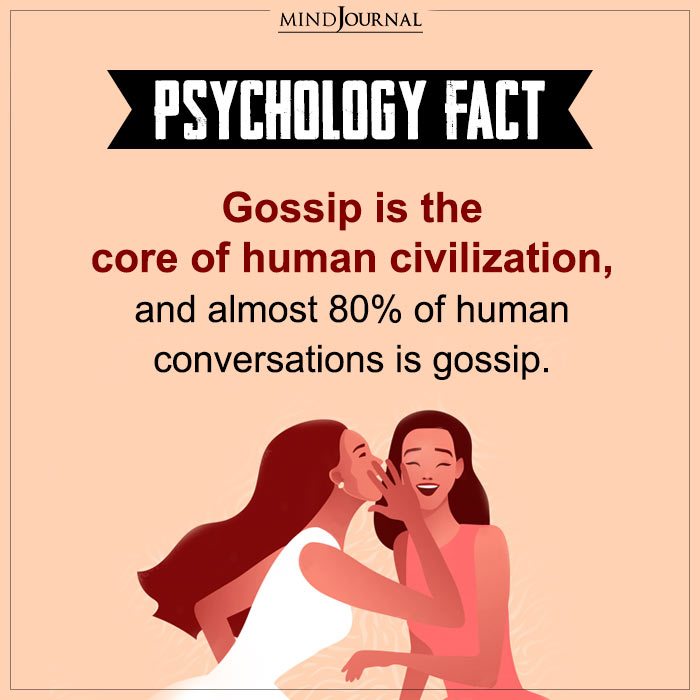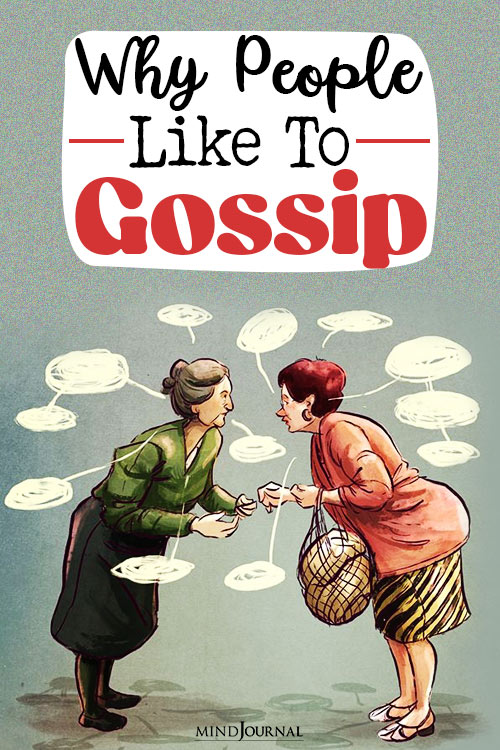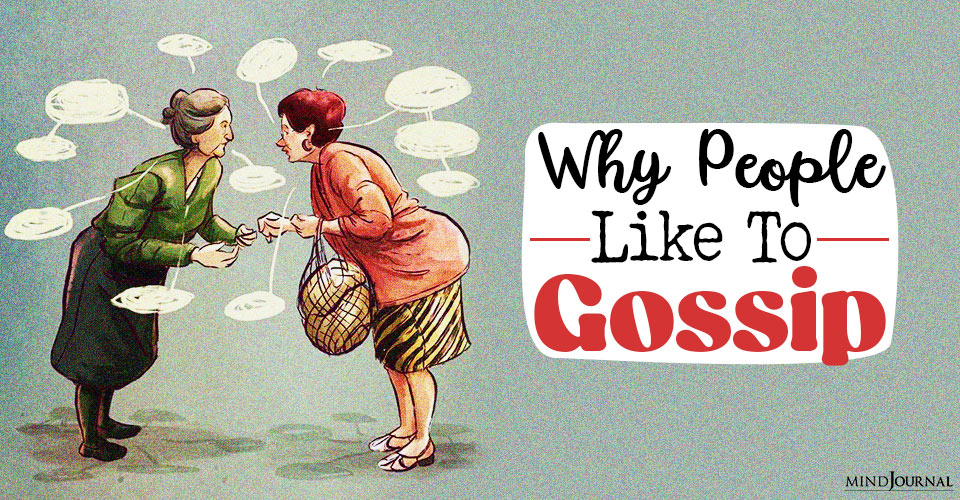Gossiping is an integral part of human culture, and it’s something that every single person has indulged in at some point or the other. But the million-dollar question here is, why people gossip? Some of the reasons why people gossip can be really interesting.
Key Points
- Gossip differs from the human tendency to talk about other people in that gossip focuses on negative information.
- Gossiping gives people a sense of power. Research demonstrates that gossip is emotionally rewarding.
- Most people agree: Saying negative things about others is OK, but do not say anything bad about me.
People like to gossip. Gossip is information shared about an absent third party. Gossip differs from the human tendency to talk about other people in that gossip tends to focus on negative information to demean the target. If the information being talked about were positive, it would be labeled praise or envy.
Gossip typically centers on the negative aspects of a person’s personal appearance, personal achievements, or personal behaviors. A less benign form of gossip is when people discuss information about celebrities or other people highlighted in tabloids or social media.
Related: The Toxicity of Gossip: Why It Hurts Us More Than Anyone Else
Motivations For Gossiping
Some people gossip to seek revenge. People who do not like a person will typically seek out other people who share a mutual dislike for the same person. Subsequent conversations center on negative evaluations of that person.
The dislike for the target of the gossip is validated and justifies hurtful behavior. However, most people gossip because gossiping is enjoyable for the sense of power it gives them. Talking about other people gives an individual a sense of relief because he or she is not experiencing the same calamities.
People also like to gossip because it gives them a sense that they possess secret information about another person, which gives them a sense of power. People want to be seen as being in the know when it comes to the latest gossip about others.
If knowledge is power, gossip is turbocharged power. In order to display their power and reinforce their egos, people must share the information with other individuals.
Gossiping comes naturally and most of the time occurs almost unconsciously to break up the monotony of routine activities or simply to spice up conversations. Social media is an ideal platform for gossip.
Comments are posted anonymously about an individual. Gossip on social media tends to be more harmful because the negative information has a wide audience and remains visible for a long time.

The Effects Of Gossip On The Brain
Peng et al. (2015) examined brain imaging of men and women as they listened to positive and negative gossip about themselves and celebrities.
People who heard either positive or negative gossip about themselves showed more activity in the prefrontal cortex of their brains, which helps people navigate complex social behaviors.
This reaction also occurred when the participants heard negative gossip in general. This research demonstrates that people want to fit in socially, and they also want others to see them in a positive light.
Related: Why Do People Gossip? This One Phrase Will Put a Stop to Gossip
Peng et al. (2015) also found that the caudate nucleus, the reward center in the brain, is activated in response to negative gossip about celebrities, which demonstrates how salacious celebrity scandals pique people’s interest.
Predictably, the study showed that people felt happier when they heard positive gossip about themselves and felt more agitated when they heard negative gossip about themselves.
Gossiping is rewarded, so people will continue to gossip as long as they do not hear anything negative about themselves. It is OK to talk negatively about others, but do not say anything bad about me.
Want to know more about why people gossip? Check this video out below!
References:
Peng, X., Li, Y., Wang, P., Mo, L., & Chen, Q. (2015). Negative gossip about celebrities and positive gossip about self entertain people in different ways. Social Neuroscience, 10, 320-336.
Written By Jack Schafer Ph.D. Originally Appeared On Psychology Today










Leave a Reply
You must be logged in to post a comment.